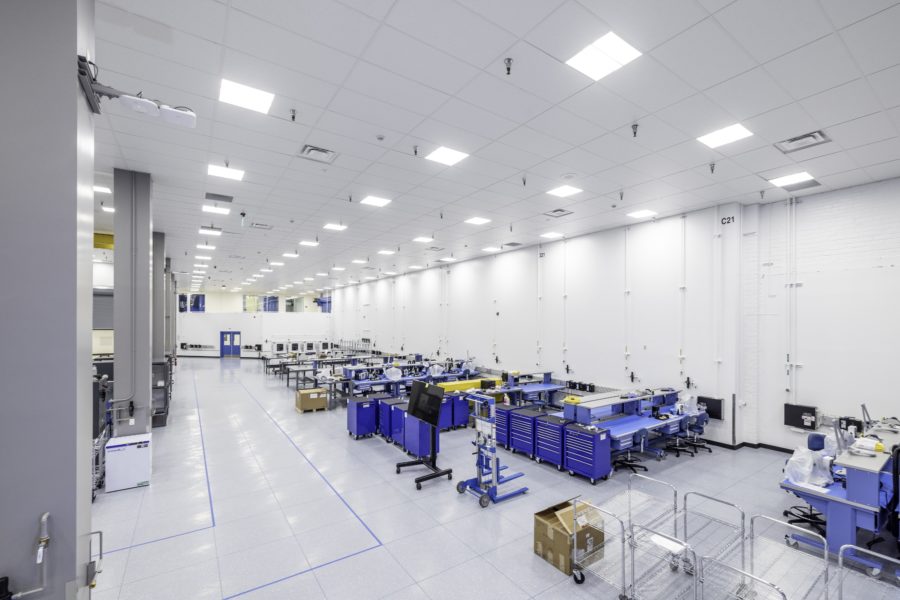Boeing unveiled its new “high-throughput” factory-within-a-factory for small satellites March 30. From a 30,000-square-foot section of its space manufacturing hub in El Segundo, Calif., the company expects to build entire constellations of small sats that span the altitudes.
Staff from Boeing’s subsidiary Millennium Space Systems will operate the new production line, according to a statement announcing the new factory floor. The subsidiary will also contribute aspects including “agility and rapid prototyping.”
The opening exemplifies how the company is “scaling and growing to fulfill our customers’ vision for multi-orbit constellations with demand across markets and mission sets,” said Jim Chilton, senior vice president of Boeing Space and Launch, in the statement.
Boeing intends to do “virtually every aspect of satellite manufacturing” in the new area. It says Millennium Space Systems has experience in environmental testing of small sats and that it will have access to Boeing’s testing facilities that have qualified more than 300 satellites for spaceflight.
In-house production may have brought down, by almost half, the price of 42 satellites in the Space Development Agency’s recently awarded data transport layer of its planned National Defense Space Architecture. According to SpaceNews, SDA’s technical director told the audience at a space industry conference that York Space Systems’ much-lower $382 million bid likely compares so favorably to those of its fellow awardees Lockheed Martin ($700 million) and Northrop Grumman ($692 million) because those two companies are actually buying the satellites from other providers, whereas York is building the satellites itself.
Private companies, governments, and institutions added more than 1,400 satellites to orbit in 2021 alone, the most ever in a year, and around the world, entities continue to announce plans to launch constellations in the hundreds or thousands.
That growth has built up over the past few years, reflected in the global economy to the tune of $447 billion in 2020, according to the Space Foundation—the first year new satellites crossed the 1,000 mark and U.S. military spending on space reached $26.6 billion.
